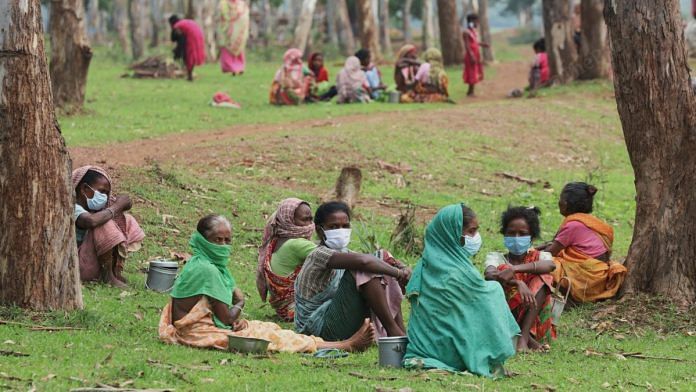
Thank you dear subscribers, we are overwhelmed with your response.
Your Turn is a unique section from ThePrint featuring points of view from its subscribers. If you are a subscriber, have a point of view, please send it to us. If not, do subscribe here: https://theprint.in/subscribe/
Following the death of Stan Swamy in the custody of the NIA, Mr Jaithirth Rao had written an article in ThePrint administering some caution about the coalition of Marxists and Jesuit priests. Today, I read a response from Mr Joseph Lobo, a Jesuit Priest. The response was quite polemical, in contrast with Mr Rao’s respectful attitude towards Jesuits whom he seems to hold in great respect.
I am a lay reader and claim no scholarship. But, from my young days since the early 1960s, I have been an avid reader of newspapers. I recall reading controversies arising from the work of Verier Elwin, a well-known anthropologist, who worked amongst the tribes of north-east. While the governments of the day were trying to bring the tribes abreast with the rest of the society, people working amongst the tribals were working for saving their lifestyles, culture, social practices, besides their traditional rights over the forest resources and land. If anything, over the last six decades, the number of people ostensibly working for the welfare of tribals in different parts of the country has increased manifold.
I have often wondered “whether the tribals should remain tribals forever? Shouldn’t they become part of the mainstream society? Don’t they also need clean drinking water, toilets, roads, schools, primary health care centres just as other citizens of India do?” The governments have, indubitably, followed the consistent policy of providing these facilities in the tribal area. Magnanimous individuals and social organisations who are working in the tribal region for their uplift ought to find no conflict with the government’s plans and schemes.
Can these organisations ever match the resources and reach of the governments? Evidently not, even allowing for malpractices and leakage of resources which occur in the implementation of any government scheme. The current central government has a better record of delivery of benefits to the target persons, when compared to the past central governments. Roads bring the tribals into contact with the rest of the world. Education changes their ideas and thinking. Greater contact with the outside world through electricity, TV, internet affects their languages, their personal preferences and tastes. Even their interest in their tribal culture may wane. But, isn’t change inevitable? Should the tribal communities remain the prisoners of their past? More puzzling for me is, why do these social welfare organisations work to preserve the tribals as though they were museum pieces?
I think that in the name of preserving the tribal cultures and tribal rights over forest land and produce, these people are holding back their progress. They are also trying to inculcate a kind of sub-nationalism amongst the tribal communities by encouraging resistance to development as a way of preserving the tribal society and culture. I would rather refrain from attributing motives to these people who work amongst the tribals. But clearly there is conflict of objectives.
The fact that such conflict of objects and interest has increased steadily over time, leads one to suspect the bonafide of these people whose methods run counter to those of the governments, even though they claim to work for the welfare of the tribals. Maoists are atheists and Jesuits are believers. But that fundamental difference does not seem to come in the way of their collaboration. Both have the same objective – curtail the reach of the government and its schemes to the tribals.
I do have some views about how proselytization introduces conflict within the families and breaks up the families. Jesuit interference with the tribals would be undesirable for this reason also. However, in this piece, I would restrict my views to this point: None has the right to hold back the material progress of the tribal communities in the name of helping preserve their rights and culture.
These pieces are being published as they have been received – they have not been edited/fact-checked by ThePrint.

COMMENTS